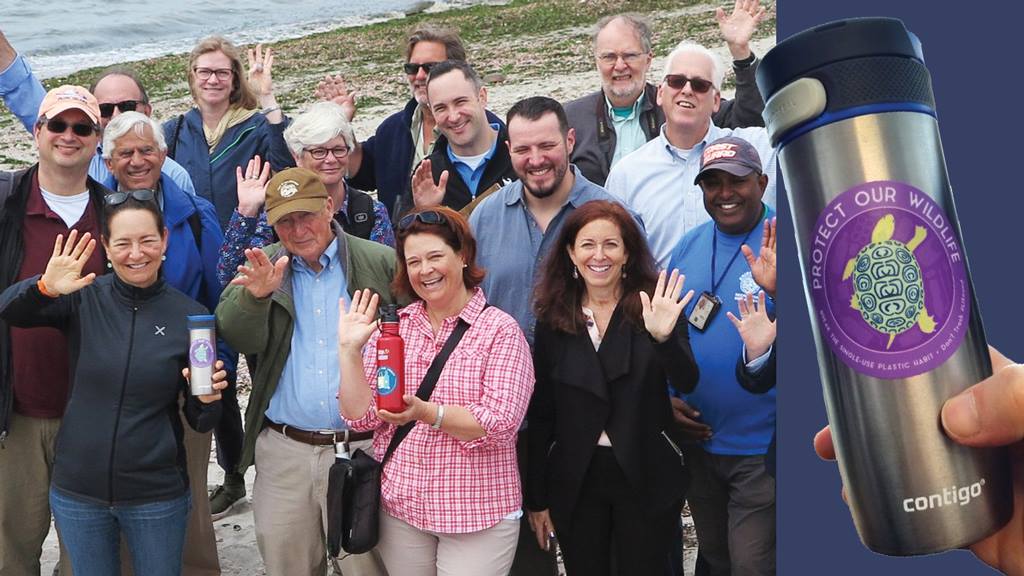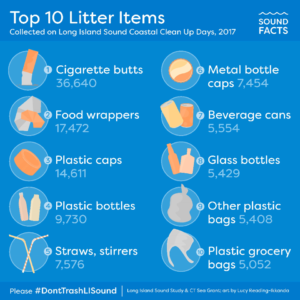Long Island Sound Study Campaign

“Protect our wildlife: break the single-use plastic habit.”
That was the rallying cry for a plastic trash reduction campaign that engaged thousands of people in New York and Connecticut this summer. NEIWPCC staff members and others at the Long Island Sound Study (LISS) delivered the message, primarily through social media.
Between August 2 and September 14, LISS posted photos, videos, articles, and graphics on its Facebook and Twitter pages. LISS also distributed eye-catching decals bearing the campaign message and helped orchestrate two beach cleanups on the Long Island Sound.
Through likes, shares, and retweets, the message to end plastic pollution reached the feeds of tens of thousands of readers. Additionally, LISS distributed more than 7,000 stickers to its partner citizen groups, teachers, and other New York and Connecticut residents who asked for them over social media.

The campaign also gained traditional media attention. NBC Connecticut broadcast live the beach cleanup that kicked off the campaign. The segment featured video of young campers from Mystic Aquarium’s summer program picking up trash. NBC Connecticut also reported that 73% of all beach litter is plastic and encouraged viewers to join the movement on social media.
Each year, LISS’s Public Involvement and Education Work Group chooses an outreach campaign that will engage the public in the work LISS does to protect the Sound. “Last year [we ran] a general campaign raising awareness on the marine debris issue. In 2018, we focused on plastic debris,” said NEIWPCC’s Robert Burg, the communications coordinator at LISS. “We [also] wanted to combine a nice promotional project with a real action: put our stickers on your reusable bottles.”

Plastic trash can remain in the environment for hundreds, even thousands, of years and is dangerous for marine ecosystems. “Plastic can clog the digestive systems of sea animals, cause them to choke, or make them too buoyant so they can no longer dive for food,” reads one of the campaign graphics, which reached more than 5,000 social media users.
“This year the issue of plastic debris really resonated with the public and with environmental groups,” said Burg. The decision to focus on plastic helped LISS build on the momentum from last year’s campaign. Social media reach increased by more than 33%.
The Long Island Sound Study is a collaboration between state, federal, and citizen organizations in Connecticut and New York. It protects the Long Island Sound estuary by focusing on nitrogen management, habitat restoration, water quality monitoring, and outreach and education.